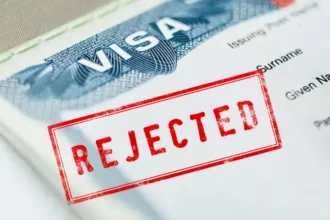When it comes to applying for an Australian visa, one critical but often misunderstood requirement is the Australian Federal Police (AFP) check. Whether you are planning to migrate permanently, stay temporarily for work or study, or bring family members into the country, character verification is a non-negotiable step. The AFP check plays a central role in assessing your character suitability for entry into Australia.
But what exactly is an AFP check? Who needs it, when should you apply, and how does it impact your visa application? This comprehensive guide will take you through everything you need to know about AFP checks—why they matter, how to obtain one correctly, and how to navigate the process efficiently.
If you’re feeling overwhelmed by visa paperwork or just want to ensure you’re ticking every box accurately, keep reading. This blog will break down the concept into simple, actionable steps and help you avoid costly delays or rejections.
What Is an AFP Check?
An AFP check, or Australian Federal Police National Police Check, is a background check conducted by the Australian Federal Police. It provides a summary of your police history in Australia, showing any criminal convictions, pending charges, or relevant police information.
The AFP check is typically required to:
-
Prove your character for visa applications
-
Comply with immigration policy for certain visa subclasses
-
Support partner and family visa processing
-
Satisfy employer-sponsored visa requirements
-
Assist with PR or citizenship applications
It is important to note that an AFP check only covers criminal history within Australia. If you’ve lived in other countries, you may also need police clearances from those places.
Why the AFP Check Matters in Visa Applications
Australian immigration authorities are committed to maintaining a safe society. Therefore, character requirements are enforced under Section 501 of the Migration Act 1958. This law states that visa applicants must be of “good character,” which generally means having no serious criminal record, no history of violence, no association with criminal organizations, and no significant immigration violations.
The AFP check is one of the main tools the Department of Home Affairs uses to verify these factors. It helps immigration officers determine if:
-
You have committed any offenses in Australia
-
You pose a security risk
-
You meet the requirements for character clearance
An adverse result on your AFP check doesn’t automatically mean your visa will be denied, but it does raise flags. Additional scrutiny or documentation may be required to explain your history.
Who Needs an AFP Check?
Whether you need an AFP check depends on the type of visa you are applying for, the length of your stay, and whether you have lived in Australia for 12 months or more.
Here’s a breakdown of who typically needs it:
1. Partner and Family Visa Applicants
If you’re sponsoring or being sponsored by a partner or family member, an AFP check is usually mandatory. This applies to both the applicant and sponsor. It ensures that the sponsor doesn’t have a history of violent or sexual offenses, especially if children are involved.
2. Employer-Sponsored Visas
Applicants under the Temporary Skill Shortage (TSS) Subclass 482, Employer Nomination Scheme (ENS) Subclass 186, or Regional Sponsored Migration Scheme (RSMS) Subclass 187 may need AFP checks if they have lived in Australia.
3. Permanent Residency Applicants
If you’re applying under General Skilled Migration (GSM) programs such as Subclass 189, 190, or 491, and you’ve lived in Australia for at least 12 months in the last 10 years, an AFP check is required.
4. Student Visa Extensions
In certain cases where students extend their visas and have lived in Australia for long periods, the Department may request an AFP clearance.
5. Citizenship Applicants
Permanent residents applying for Australian citizenship must submit an AFP check as part of their background check requirements.
When Should You Apply for an AFP Check?
Timing is everything. If you apply too early, the certificate may expire before your visa is processed. If you apply too late, your application might be delayed.
AFP checks are generally valid for 12 months from the date of issue, unless otherwise stated. The best time to apply is:
-
Within 3 months before lodging your visa application
-
After you’ve gathered most other documents, so it’s not outdated during review
-
As soon as a case officer requests it (for ongoing applications)
Delays in obtaining the AFP certificate can hold up the entire process, especially if the Department is waiting on it to finalize your visa grant.
How to Apply for an AFP Check
The process of applying for an AFP check is relatively straightforward. It can be done online or via post, with the online method being faster and more reliable.
Step 1: Go to the Official AFP Website
Ensure that you’re on the official Australian Federal Police website. Beware of third-party websites that may overcharge or delay the process.
Step 2: Select “National Police Check”
Choose the option for ‘Name Check’ (not fingerprint check unless specifically requested).
Step 3: Choose the Right Code – Code 33
This is a critical step that many applicants get wrong.
For immigration purposes, you must select ‘Code 33 – Immigration/Citizenship – Purpose Type’. This ensures your AFP check will be accepted by the Department of Home Affairs. Selecting the wrong code (like for employment or volunteering) will lead to rejection, and you’ll have to apply again.
Step 4: Provide Identity Documents
You’ll need to upload certified digital copies of valid ID, such as:
-
Passport
-
Driver’s license
-
Medicare card or birth certificate
-
Proof of address (utility bill or lease agreement)
Step 5: Pay the Application Fee
The fee is approximately AUD 42 for online applications. You can pay using credit card or PayPal. Keep a copy of the receipt for your records.
Step 6: Submit the Application
Once submitted, you’ll receive a confirmation number. The AFP will send the certificate either by post or digital PDF, depending on the option you selected.
How Long Does It Take?
Processing time can vary based on workload, public holidays, and application accuracy. Generally:
-
Online applications take about 5–10 business days
-
Postal applications may take up to 3 weeks or more
In peak times (e.g., visa season), delays are possible, so apply well in advance.
Digital vs. Physical Certificates
Applicants can choose to receive their AFP check as either:
-
A PDF document (digitally signed)
-
A physical mailed certificate
Both are valid for visa purposes. The PDF version is quicker and recommended unless a paper copy is explicitly required. You can easily upload the digital file to your ImmiAccount when requested.
Common Mistakes to Avoid
Many applicants unknowingly make errors during the AFP check process. These mistakes can delay or even derail your visa application.
1. Choosing the Wrong Purpose Code
Always choose Code 33 – Immigration/Citizenship. Any other code will lead to rejection.
2. Submitting Expired or Incorrect Documents
Ensure your ID is current and matches your application details exactly.
3. Name Mismatches
Your name must match your passport exactly. Include all given names and surnames in the correct order.
4. Applying Too Early or Too Late
AFP checks are only valid for 12 months. Time your application strategically to avoid having to redo it.
5. Using Third-Party Agencies
There are many unofficial websites offering AFP checks at inflated prices. Always apply directly through the AFP.
What Happens If You Have a Criminal Record?
If your AFP check reveals a criminal history, don’t panic. Not all offenses are grounds for visa refusal. Factors considered by immigration authorities include:
-
The nature and seriousness of the offense
-
Whether it resulted in a prison sentence
-
Time elapsed since the conviction
-
Demonstrated rehabilitation
In some cases, you may be asked to provide additional documents such as court transcripts, sentencing details, or personal character references.
If you think your past may impact your visa, it’s wise to consult a registered migration agent or immigration lawyer.
AFP Check for Sponsors in Family Visas
If you are sponsoring your partner, fiancé(e), or child for a visa, you may also be required to submit an AFP check—especially if there are minors involved.
Sponsors with a history of domestic violence, sexual abuse, or child exploitation may be barred from sponsoring a visa applicant. This rule is intended to protect vulnerable individuals entering the country.
Sponsors may also be subject to mandatory disclosure laws, meaning their police history could be shared with the visa applicant. Transparency and honesty are essential.
How to Submit AFP Checks with Your Visa Application
Once you receive your AFP certificate, you can upload it via:
-
Your ImmiAccount for online applications
-
Through your registered migration agent or lawyer
-
As a hard copy for paper-based applications (rare)
If your AFP check is requested after lodging your visa, the Department will usually give you 28 days to respond. Make sure to act quickly to avoid processing delays.
Reapplying or Updating Your AFP Check
If your visa application is still under review and your AFP certificate is over 12 months old, you may be asked to submit an updated version.
You’ll need to go through the same process again. There is no shortcut or renewal process—you must complete a new application.
Final Thoughts
While it might seem like just another piece of bureaucratic paperwork, the AFP check is a critical component of your Australian visa journey. A small oversight, such as selecting the wrong purpose code or submitting expired documents, can lead to serious delays—or worse, a visa refusal.
By understanding exactly what the AFP check is, how it fits into your visa strategy, and how to handle it with care, you’ll be setting yourself up for a smoother, faster, and more successful immigration experience.
Always double-check your documents, follow official instructions, and apply in a timely manner. And if you have a complex case or past convictions, don’t hesitate to seek expert advice.
Whether you’re applying for a student visa, joining a loved one, or embarking on a career in Australia, the AFP check is a vital checkpoint on your journey. Get it right, and you’re one step closer to your Australian dream.



